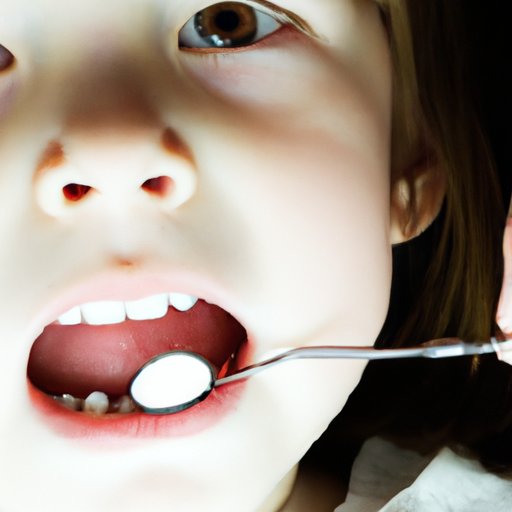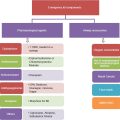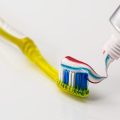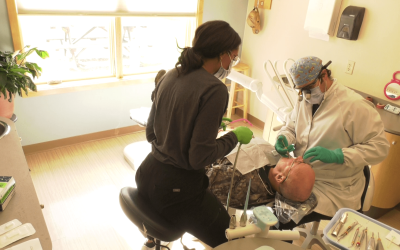In Florida, finding affordable dental care without insurance can be a challenge, especially for children. A recent study reveals that a growing number of Floridians, particularly children, are resorting to emergency rooms as their only dental plan. High prices, limited or no insurance coverage, and a significant shortage of dentists in rural areas leave families with few alternatives. The report also highlights preventable dental issues such as abscesses, tooth decay, and cavities, which can be caught early with regular check-ups and proper oral care. Additionally, the study found that Florida had the highest average bills for dental emergency room visits, ranging from $1,900 to $2,600 for children. With Medicaid covering the majority of these visits and a lack of dentists accepting Medicaid patients, the situation becomes even more challenging. Despite these obstacles, there are a few options to consider before resorting to the emergency room, such as taking care of your teeth proactively, utilizing community clinics or public dental clinics, visiting dental schools for reduced-cost services, and exploring clinical trials or programs like Florida KidCare and CHIP. By being proactive and exploring these alternatives, individuals in Florida can seek and receive dental care without insurance.
Options for Dental Care in Florida Without Insurance
Taking care of your teeth is the first step to maintaining good oral health, even if you don’t have dental insurance. By practicing proper oral hygiene, you can prevent many dental problems and reduce the need for expensive treatments. Here are some tips to take care of your teeth:
- Brush your teeth twice a day with fluoride toothpaste. This helps to remove plaque and prevent tooth decay, gingivitis, and periodontitis.
- Clean between your teeth every day. Flossing or using interdental brushes, water-based irrigators, or wood sticks can help remove plaque and prevent gum disease.
- Cut back on sugar. Sugary drinks and snacks can contribute to tooth decay, so try to limit your intake.
- Drink fluoridated water. Fluoride helps to strengthen your teeth and prevent cavities, so drink plenty of water, especially fluoridated water.
In addition to taking care of your teeth at home, there are several options for dental care in Florida without insurance. These include community clinics, public dental clinics, dental schools, clinical trials, and programs like Florida KidCare and CHIP. Let’s take a closer look at each of these options:
Community clinics
Many community health clinics offer reduced-cost dental care for those without insurance. These clinics are often run by the U.S. Health Resources and Services Administration and provide a range of services. To find a community clinic near you, you can search online or call (877) 464-4722 (ASK-HRSA) for assistance. It’s a good idea to call ahead and make an appointment as soon as possible, as there may be limited availability.
Public dental clinics
There are also public dental clinics in Florida that provide dental care at low prices or on a sliding fee based on affordability. These clinics are often run by health departments or community health centers. They offer routine cleanings and basic care, and some locations may also provide advanced and emergency dental care. Orthodontic services may also be available at certain clinics. To find a public dental clinic near you, you can search online or visit AuthorityDental.org.
Dental schools
Dental schools can be a great option for affordable dental care. Dental students and dental hygienists need to gain practical experience, and they often offer services at reduced rates. While appointments at dental schools may take longer because each step is checked by experienced supervisors, the savings can be significant. You can search for dental schools in Florida online to find options in your area. Additionally, you can consider dental hygienist schools for basic cleaning and preventative care.
Clinical trials
The National Institutes of Health occasionally conduct clinical trials for specific dental and oral issues through the National Institute of Dental and Craniofacial Research. These trials may offer free or low-cost dental treatments to eligible volunteers. To find current and upcoming clinical trials in Florida, you can search the ClinicalTrials.gov website.
Florida KidCare and CHIP
If you have children, Florida KidCare and the Children’s Health Insurance Program (CHIP) can provide health coverage that includes dental care. These programs offer routine check-ups, immunizations, and dental care for eligible children. Florida KidCare has different partners based on the age of the child, and they offer subsidized plans for those who make too much for Medicaid and full-pay options for those who don’t qualify for subsidized coverage. To find dentists and clinics near you that accept Medicaid and CHIP, you can visit the InsureKidsNow.gov website.
While these options can help you access dental care without insurance, it’s important to note that there are challenges to receiving dental care without insurance in Florida. High prices, low insurance coverage, and a shortage of dentists in rural areas can make it difficult to find affordable and accessible dental care. Additionally, rising dental care costs and insurance premiums contribute to the financial burden faced by many individuals and families.
Dental insurance is often seen as a discount program rather than actual insurance, as it primarily covers preventive care and provides some coverage for other services. The rising costs of dental care, coupled with dentists’ reluctance to accept Medicaid patients due to low reimbursement rates, further limit access to affordable dental care.
The shortage of dentists in rural areas is also a significant challenge. Student debt plays a role in this issue, as the average dental school graduate in 2022 left college with significant debt. This debt discourages dentists from opening practices in rural areas, leaving those communities with limited access to dental care.
In conclusion, taking care of your teeth through proper oral hygiene practices is essential, even if you don’t have dental insurance. Florida offers various options for dental care without insurance, including community clinics, public dental clinics, dental schools, clinical trials, and programs like Florida KidCare and CHIP. However, it’s important to be aware of the challenges and limitations associated with accessing dental care without insurance, such as high prices, a shortage of dentists, and rising dental care costs.












